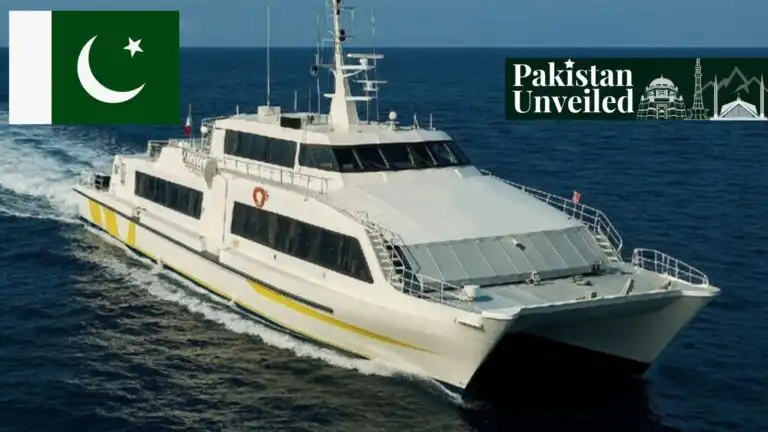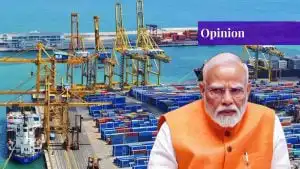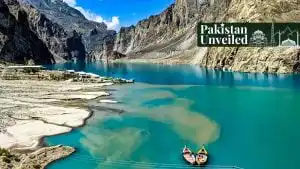He is pursuing a BS in International Relations programme from International Islamic University, Islamabad and has a keen interest in research works, policy analysis, defence and strategic studies and conflict resolution.
As of the 21st century, the concept of the blue economy lies at the epicenter of economic progress and development. States with warm waters and required resources can boost their economic ties with the rest of the world easily. From civilian to military purposes, maritime zones have now become a necessity for states to become valuable and active actors in the international arena. Its best manifestation could be Great Britain, which ruled the world for almost three centuries. It is due to the fact that the Royal Navy was the strongest of all, securing critical sea lanes of communication for trade and commerce. Pakistan is not an exception in this respect. The Pakistani blue economic initiatives have been considering the warm water ports of Pakistan, such as Gwadar, Pasni, Keti Bandar, and so forth, for a long time. Gwadar is another constituent of the Pak-China CPEC project. Therefore, the Pakistan government has rolled out its inaugural global marine ferry between Gwadar and Gulf countries.
Genesis of the Pakistan Ferry Service
Under the leadership of PM Shehbaz Sharif and Maritime Minister Junaid Anwar Chaudhry, Pakistan has launched its first international maritime ferry service. This logistical revolution has not been created overnight; consultations, discussions, and solutions have been in the pipeline to rejuvenate the maritime industry of Pakistan and to tap the vast economic prospects of Gwadar port. However, the project was not implemented because of historical backlashes, political instabilities, and bureaucratic encumbrances, as there were no implemented steps to make the project a reality. Similarly, the issue of licensing and final operation has also long been paused due to domestic constraints. But, this time, not only has the ferry been launched, but also its first license has been granted to a UK-based maritime company, “Sea Keeper.” This ferry service would connect Karachi to Iran and the GCC nations, including Oman, the UAE, Saudi Arabia, etc.
Luxuries and Perks
Dubai, Oman, and Jeddah are situated at a distance of about 725 km, 600-700 km, and 2600 km respectively from Gwadar. There are official estimates that it would take almost 20-90 hours to arrive at the required place. The cost in the case of air travel is extremely high. GCC travelling is normally about 80,000 to 100,000 Rs. But, this ferry has reduced the cost, allowing the citizens to travel at 20,000-60,000 Rs, depending on the destination. This ferry is comprised of economy and business class cabins for solo as well as family travel. The economy class provides a luxurious room with eating, drinking, and recreational facilities, but at a relatively high cost.
Rationale Behind Maritime Leap
The main cause of the inauguration of the Pak-ferry service is religious tourism. The Pakistani citizens visit Jeddah for Hajj every year and in Iraq for Chehlum. Many of these pilgrims used to take long distances by using the Iranian route to get to Iraq. Nevertheless, a sudden halt of land traffic to Iran stranded thousands of people, causing frustration and confusion. This ferry service forms a possible alternative for the citizens as well as for the government. Now, these pilgrims can travel to their desired holy sites without taking into account the land routes.
This initiative also projects the blue economic vision of Pakistan to the international community. It enhances the significance of Pakistani warm ports and their strategic locations, connecting the South Asian region to the Persian Gulf and beyond, with reduced cost and time. This ferry service is also a blessing for overseas Pakistanis working in Gulf countries. The ferry service now offers an affordable and convenient travel option.
Likewise, the land routes in Pakistan, particularly those passing through Balochistan to Iran, are very susceptible to militants. Maritime ferry, therefore, serves as a safe alternative whereby the citizens can travel safely, and this would lessen the burden placed on the security agencies within our country. This ferry is, up to date, entirely intended as a ferry carrying passengers. Nonetheless, cargo and logistics can also be done by these ferries. This would not just enhance but also revitalize the maritime sector of Pakistan and improve the regional connectivity and resiliency.
Operation and Regulation
Pakistan National Shipping Corporation (PNSC) is the primary authority responsible for the operational framework and regulatory mechanism of the ferry. PNSC would serve the very purpose of ensuring compliance with the international maritime and safety standards. However, other departments, including the Ministry of Defence, the Ministry of Foreign Affairs, and the Ministry of Interior, are also aligned and associated with PNSC. This not only shows the commercial feasibility of Pakistan but also depicts the integration of Pakistan’s diplomatic, security, and technical departments.
Ferry Terminals
Moreover, after the operational formalities are accomplished, ferry terminals will be handed over to the Federal Investigation Agency and Customs and Security agencies for immigration and passport processing.
Strategic Significance
Diversification of Pakistan’s Blue Economy is the primary outcome of this project. It will generate revenue through ticket sales, port fees, and onboard commercial activities while stimulating infrastructure development in terminals and ship maintenance. With private sector engagement and a lower carbon footprint than air or road travel, the initiative aligns with Pakistan’s sustainability goals and adds depth to its maritime economic base.
In addition, Gwadar port is one of the components of the China-Pakistan Economic Corridor (CPEC), which offers a lot of potential. It will also facilitate increasing the connection of South Asia with the Persian Gulf and the Middle East. The maritime diplomacy of Pakistan is also beneficial to this project. Pakistan will be connected to the GCC and the Middle Eastern countries even more through soft connectivity. This improves the leverage of the foreign policy of Pakistan and the cooperation of the region on the basis of shared interests in the sea.
The tourism industry has also improved because the ferry service has created employment opportunities and especially by connecting Pakistan to major religious and recreational destinations in the Gulf and Iran. Coastal tourism of the country, or the secondary tourism such as food, transport, handicrafts, and cultural interchange, is also encouraged by the project, strengthening the soft power of Pakistan.
Future Prospects
- The preparedness of infrastructure is one of the priorities; the coordination of different agencies of the government is needed at the terminals. Other problems include vessel and service reliability, since the modern ferries are required to be purchased at international safety and comfort standards.
- Multilateral and bilateral deals with Iran and the Gulf nations should be done. Such agreements will be critical in the case of the expansion of the project.
- The demand with respect to the passengers is unpredictable. The projections are high; however, the actual figures will be based on the ticket cost, schedules, and competition based on air or land routes.
- Although the license is already approved, the introduction of the service and its implementation will require time before the vessels and terminals are completely prepared.
Conclusion
The initiation of Pakistan’s first international maritime ferry service is not just a symbolic or politically oriented step. Rather, it outlines the evolving maritime sector of Pakistan, with the government taking bold and urgent steps to fulfill the needs of its people vis-à-vis economic development. This project will enable Pakistan to project its forward economic presence via maritime routes, luring multiple stakeholders and investors to take part in the initiatives or to start new ones. Thus, these types of realistic projects are timely, allowing Pakistan to take advantage of its geography.
If you want to submit your articles and/or research papers, please visit the Submissions page.
To stay updated with the latest jobs, CSS news, internships, scholarships, and current affairs articles, join our Community Forum!
The views and opinions expressed in this article/paper are the author’s own and do not necessarily reflect the editorial position of Paradigm Shift.






